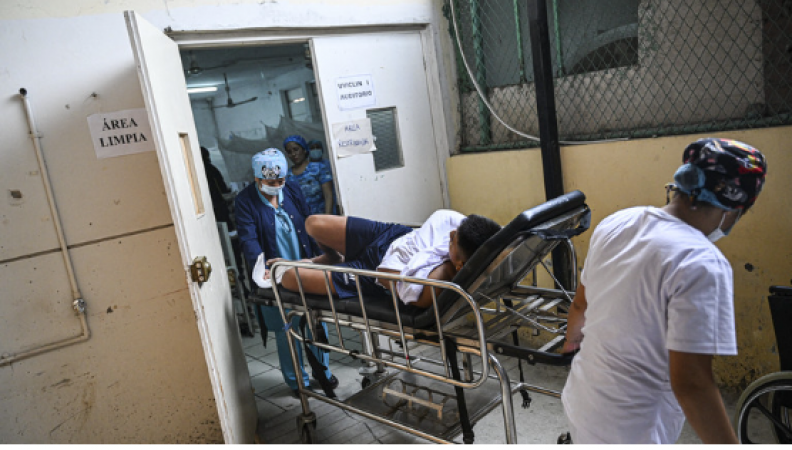
Peru: A state of emergency has been declared in Peru due to an increase in cases of the rare autoimmune disease Guillain-Barre syndrome (GBS). Authorities have set aside more than $3 million to buy drugs for treatment after nearly 200 instances were reported in recent months.
Cesar Vasquez, the health minister for Peru, made the announcement during a visit to the National Institute of Neurological Sciences on Saturday. The measure will last for 90 days.
The official stated that a significant increase in recent weeks "forces us to take action as the state to protect the health and life of the people."
Also Read: Saudi Arabia sees a 4.8% increase in new SMEs, with 1.2 million total in Q1
The National Centre for the Supply of Strategic Health Resources will be able to purchase immunoglobulin for the treatment of GBS patients for the ensuing two years thanks to the emergency declaration, according to the minister.
For this purpose, more than 12 million Peruvian sol ($3.3 million) have been set aside, according to Vasquez. The majority of regions already have enough medications available, but a redistribution programme has been established to aid those in need, the minister added.
Also Read: Meetings are held in Addis Abeba to talk about ways to end the conflict in Sudan
Official statistics show that 182 GBS cases have so far been identified in Peru. 31 of them are still in the hospital, while 147 have been let go. Since January, four people have died as a result of the illness.
Guillain-Barre syndrome is a rare condition in which a person's immune system attacks the peripheral nerves, according to the World Health Organisation (WHO). This results in a brief loss of muscle control and the inability to perceive pain, temperature, or touch.
The majority of patients supposedly make a full recovery without any issues.
GBS, however, can be fatal, particularly if the chest muscles are harmed, which makes breathing challenging. The condition may also impair a patient's ability to swallow or speak. Patients are kept under constant observation in intensive care units in such severe cases.
3% to 5% of GBS patients die as a result of complications on average.
Also Read: In the Saada explosion, 2 Yemeni demining workers perished
A bacterial or viral infection, the administration of a vaccine, surgery, or any of these events frequently precede the disease. Patients with the Zika virus are more likely to develop GBS, and the pathogen is thought to be a trigger.
GBS currently has no known treatment; instead, medical professionals only aim to lessen the severity of the condition's symptoms.